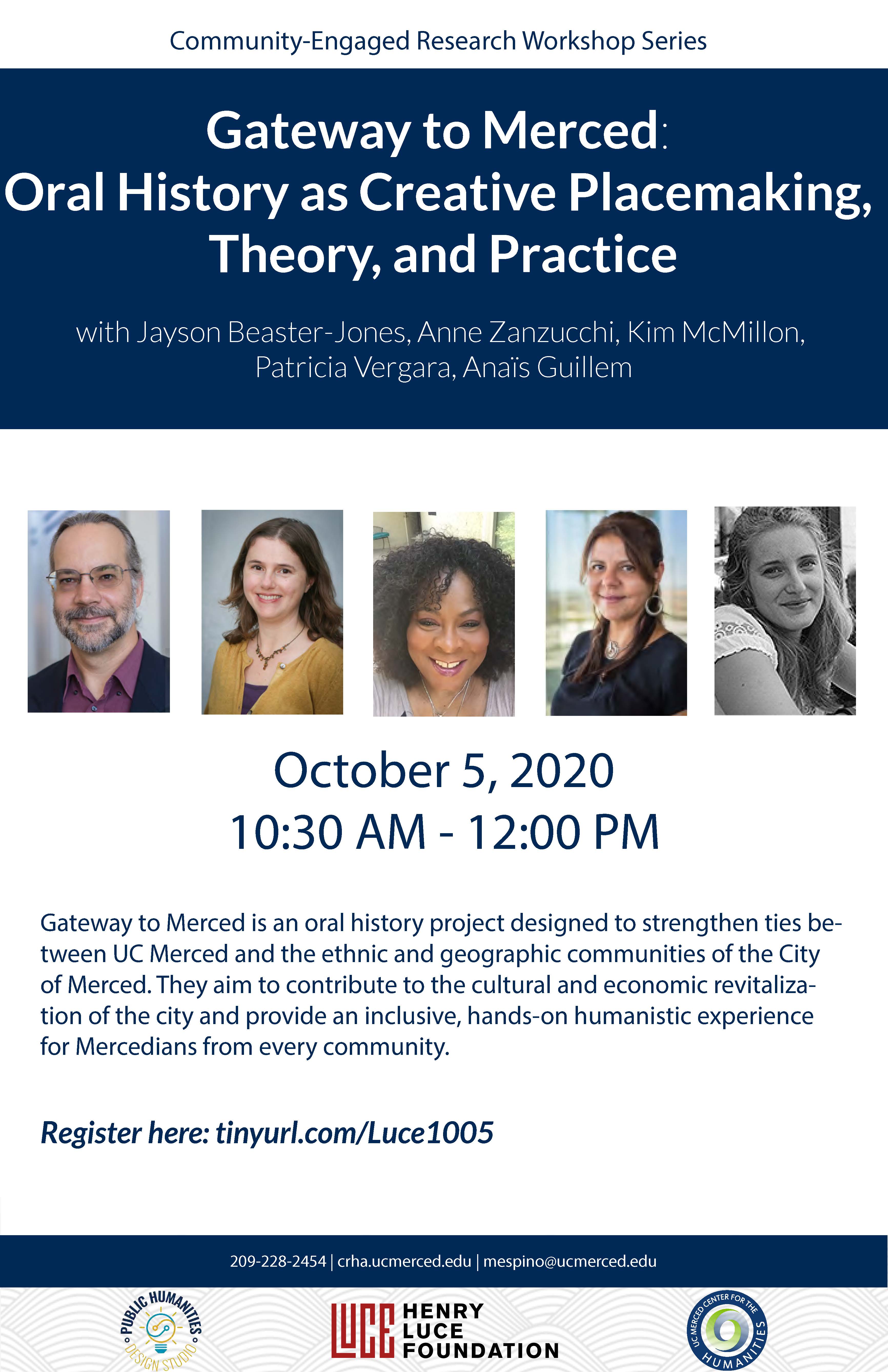Gateway to Merced: Oral History as Creative Placemaking, Theory and Practice
Jayson Beaster-Jones, Associate Professor, Global Arts Studies Program
Anne Zanzucchi, Associate Dean for Student Services and Academics
Patricia Vergara, Assistant Professor, Global Arts Studies Program
Kim McMillon, Community Consultant, Gateway to Merced Project
Anaïs Guillem, PhD Candidate, Interdisciplinary Humanities
This is the second segment of our Community-Engaged Humanities Workshop Series.

As early as 1908, the city of Merced, California adopted “Gateway to Yosemite” as its tourism slogan, a time when a trip from the coast to the Sierra Nevada took days instead of hours. The phrase is still prominent on official signage around town. What happens when we imagine our town as a destination, not a stop on the way to somewhere else? How can we use public humanities and art as a way to generate more interaction, communication, and empathy between people who are too often separated and hidden from one another by features of evolving urban geography? Gateway to Merced is an oral history project designed to strengthen ties between UC Merced and the ethnic and geographic communities of the City of Merced. We aim to contribute to the cultural and economic revitalization of the city and provide an inclusive, hands-on humanistic experience for Mercedians from every community. In conjunction with a number of local organizations, we collect experiences of Merced residents and represent them in a variety of ways (painting, film, podcasting, etc.) to weave the complex tapestry of our city’s peoples, institutions, and histories. https://www.facebook.com/GatewayToMerced/.
Reading:
Atalay, Sonya. 2012. Community-Based Archaeology: Research with, by, and for Indigenous and Local Communities. Chapter 3: Guiding Principles of Community-Based Participatory Research, pp. 55-88
REGISTER HERE
These workshops are focused on supporting graduate student development in community-engaged humanities research. Participation is open to faculty, graduate students and community partners and students enrolled in IH 291: Seminars in the Humanities. Participation in the workshop series is part of professional development and a qualification to apply for a summer Luce fellowship.
This workshop series was made possible by the generous support of the Henry Luce Foundation.

See the list of workshops here:



